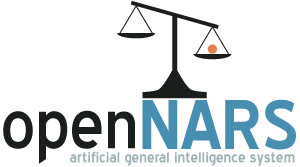With notable progress in recent years, the AGI-oriented NARS (Non-Axiomatic Reasoning System) has been attracting increasing interest from researchers and students from around the world. Built on top of its open-source implementation OpenNARS, several NARS-based or NARS-related projects have been undertaken and are currently under development. To encourage communication and collaboration among the researchers, as well as to introduce these projects to the AGI community, a NARS Workshop will be held during AGI-19 as an integrated part of the conference.
The workshop will be a one-day event (Aug 6th). It will start with a tutorial that introduces the conceptual design and current implementations of NARS, followed by presentations and discussions of the existing projects. The workshop concludes with a panel discussion about future research. The workshop will be open to all AGI-19 attendees. Additional demonstrations and tutorials may be arranged on a case-by-case manner for those wishing to learn more about the project.













